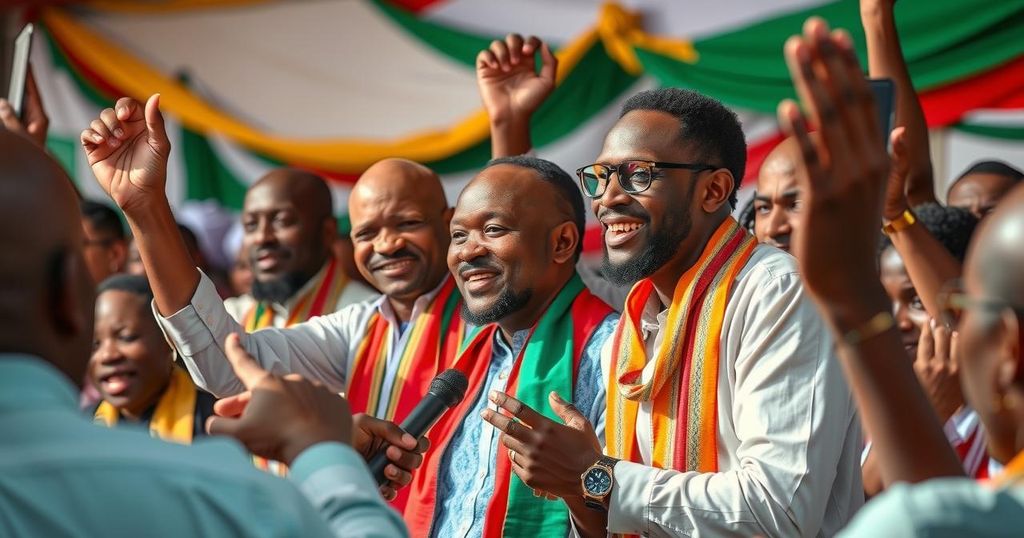Chad’s ruling Patriotic Salvation Movement won a significant majority in the parliamentary elections, securing 124 out of 188 seats amidst a boycott by key opposition parties. The election results, amidst a voter turnout of 51.5 percent, further solidify President Mahamat Idriss Déby’s authority in a nation grappling with multiple security challenges.
In December’s parliamentary elections in Chad, the ruling Patriotic Salvation Movement (PSM) achieved a decisive victory, winning 124 out of 188 seats, as reported by the electoral commission. This election was characterized by a significant boycott from over ten opposition parties, including the prominent Transformers party, which labeled the election process as a mere “charade.” Despite a 51.5 percent voter turnout, the absence of credible opposition further consolidates President Mahamat Idriss Déby’s political power, following his ascension to leadership after the death of his father, long-time president Idriss Déby Itno.
This parliamentary election marks Chad’s first in over ten years and signifies the concluding stage of a transition to democracy initiated when Mahamat Idriss Déby established military governance in 2021. While Déby proposes that the election results will lead to much-needed decentralization and empowerment of local governance, opposition parties remain skeptical, fearing a repetition of the disputed presidential vote held previously.
Chad’s political landscape has been complex and tumultuous, particularly following the death of longtime president Idriss Déby Itno in 2021. His son, Mahamat Idriss Déby, transitioned from military leader to president under contested circumstances, following a challenging period marked by enduring military control and alleged electoral misconduct. The recent parliamentary elections were expected to contribute to a broader democratization process but faced significant pushback from opposition factions, raising questions about the legitimacy of the electoral process.
Overall, the ruling Patriotic Salvation Movement’s victory in Chad’s recent parliamentary elections further secures President Mahamat Idriss Déby’s hold on power, despite widespread opposition boycotts and allegations of electoral fraud. The future of Chad’s democracy remains uncertain as skepticism from opposition parties casts a shadow over the government’s pledges of decentralization and reform.
Original Source: www.rfi.fr






